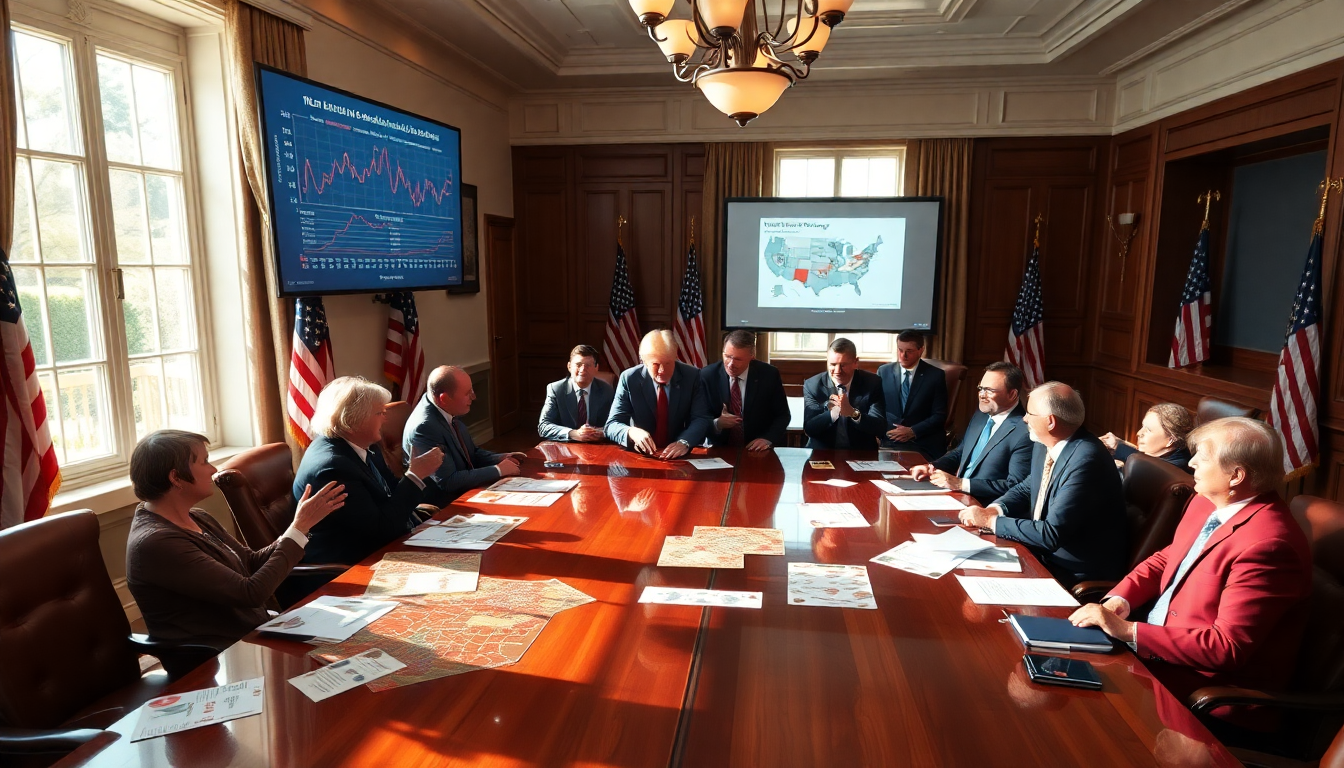Table of Contents
The political scene around Donald Trump is buzzing with activity, especially as he sets his sights on influencing the Senate race to fill Mitch McConnell’s long-held seat. With Trump’s endorsement becoming a potential game changer for candidates, the emphasis on loyalty and strategic alignment within the GOP has never been clearer. So, who’s in the running, and what does Trump’s influence really mean? Let’s break it down.
The Current Senate Race Landscape
The competition for Mitch McConnell’s Senate seat is heating up, and the candidates are eager to make their mark in what promises to be a fierce battle. Representative Andy Barr, former state attorney general Daniel Cameron, and entrepreneur Nate Morris are all striving for the Republican nomination. Each candidate carries a distinct background and network of allies, but the burning question is: who will catch Trump’s eye and earn that all-important endorsement?
Andy Barr has stirred the pot with his recent donations to House Republicans who voted to impeach Trump. This financial backing for those who opposed Trump during crucial moments has raised eyebrows among Trump’s inner circle. Is Barr’s loyalty in question? Despite this, he’s trying to align himself with Trump, aiming to build a broader GOP base to counter the Democratic agenda.
Then there’s Daniel Cameron and Nate Morris, who are also crafting their narratives. Cameron, despite a setback in the governor’s race, is considered a strong contender with past ties to Trump. On the flip side, Morris is taking an assertive stance by branding his campaign as a way to “take out the trash” in Washington—an appealing message for Trump’s supporters who are hungry for change.
Why Loyalty Matters in Trump’s Circle
Loyalty is a cornerstone of Trump’s political strategy as he weighs his endorsements for the upcoming election cycle. His past support for candidates has often depended on their allegiance to him, especially following the January 6th Capitol riots, a pivotal moment that has defined many Republicans’ paths.
Trump’s endorsement packs a punch not just in the primaries but also carries significant weight in the general election. Candidates like Barr, who show signs of wavering loyalty, may find themselves in a tough spot trying to win over Trump’s base. Loyalty isn’t just talk; it reflects in financial support and public backing during key votes.
The stakes are high as the conversations about candidate viability unfold. Trump’s supporters are keen on backing candidates who have shown steadfast loyalty, while those who have strayed from his narrative may find it hard to gain traction with the electorate.
Looking Ahead: Future Implications and Candidate Viability
As the Senate race progresses, the pressure mounts for all candidates involved. Trump’s potential endorsement could make or break a campaign, especially in a state like Kentucky, where he secured a strong victory in the last election. Therefore, candidates need to tread carefully to align their public stances with Trump’s expectations.
As we look to the future, the primary election will serve as a crucial test for each candidate’s ability to resonate with Trump’s base. They must find the right balance between their personal beliefs and the necessity for party unity, all while courting the influential Trump voter demographic. It will be fascinating to watch how alliances shift and how candidates adapt their strategies in response to Trump’s sway.
Ultimately, the question lingers: who will rise as Trump’s favored candidate and secure the endorsement that could lead to a general election victory? As we move closer to the primaries, the interplay of loyalty, strategy, and candidate viability will continue to shape this pivotal race.


